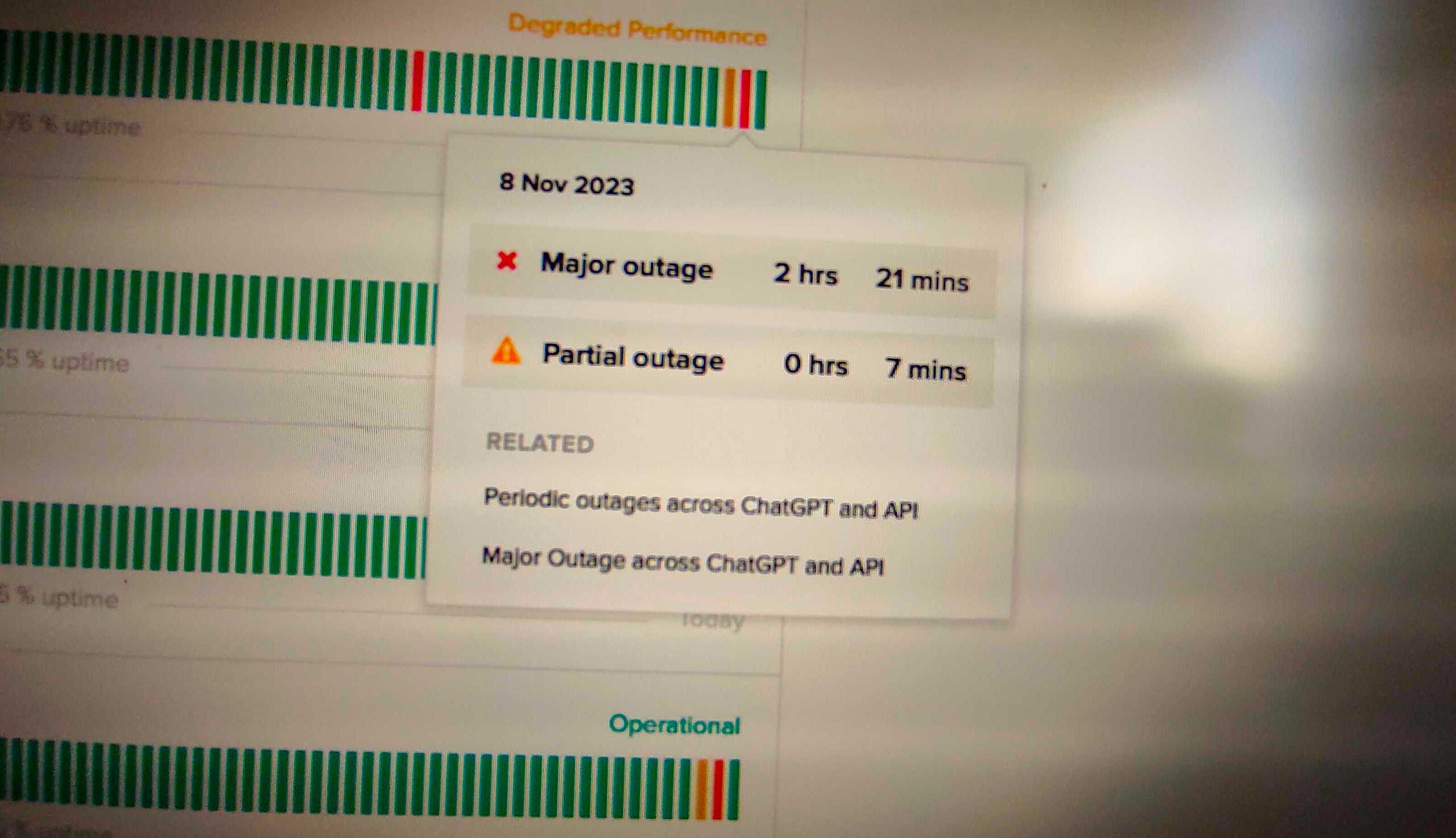OpenAI has confirmed that ChatGPT and its API experienced a major outage on Wednesday due to what appeared to be a distributed denial-of-service (DDoS) attack.
The artificial intelligence organization first reported seeing problems with its LLM-based chatbot and API on November 7. The disruptions were initially described as partial outages, but a major outage was reported on November 8.
In an update shared late on Wednesday, OpenAI revealed that the outages were caused by “an abnormal traffic pattern reflective of a DDoS attack”.
The hacker group Anonymous Sudan has taken credit for the ChatGPT outage on its Telegram channel. The hackers claim to have targeted OpenAI for several reasons, including for being an American organization, as well as for its alleged cooperation with Israel and its anti-Palestine stance.
Anonymous Sudan claims to be a hacktivist group motivated by religious and political causes, targeting many organizations with disruptive DDoS attacks, including major companies such as Microsoft, X (formerly Twitter), and Telegram.
In reality, the group does not appear to have any ties to Sudan and instead seems to be linked to Russian hackers, including the notorious KillNet group. Some members of the cybersecurity industry believe Anonymous Sudan may even be affiliated with the Russian government.
ChatGPT appears to be working at the time of writing. Only a handful of major outages were reported over the past 90 days, according to OpenAI’s status page.
Related: AP News Site Hit by Apparent Denial-of-Service Attack
Related: Hackers Join In on Israel-Hamas War With Disruptive Cyberattacks
Related: OpenAI Patches Account Takeover Vulnerabilities in ChatGPT
















